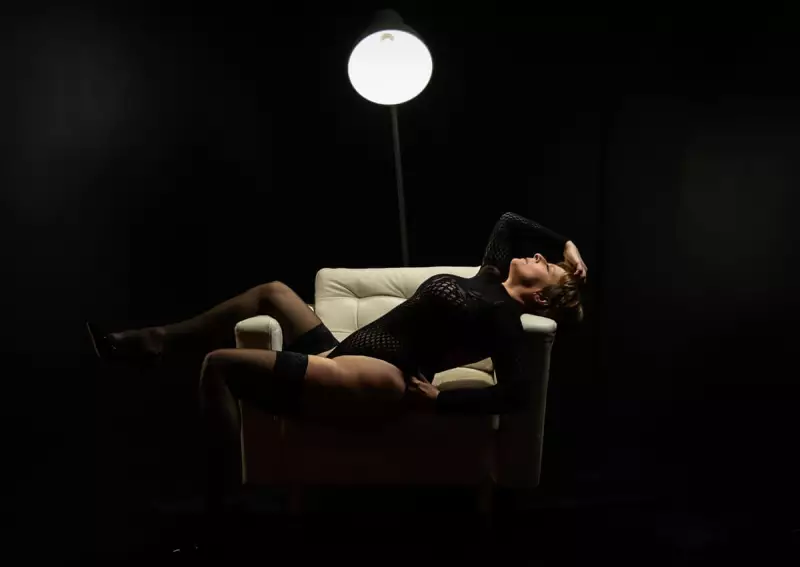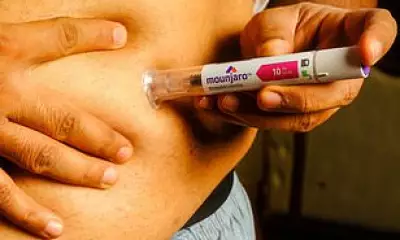
In an era of curated social media images, a deeply personal photographic trend is empowering women to see themselves in a radical new light. Boudoir photography, once primarily a bridal gift, has evolved into a powerful tool for self-discovery and confidence-building, with women across the UK investing in professional intimate portraits that are changing their lives from the inside out.
The Moment of Transformation
For Brittany Witt, a 33-year-old former competitive weightlifter, the pivotal moment came lying naked on a studio floor in Texas. Her photographer, JoAnna Moore, asked her to crawl across the floor, a request that stripped away years of protective armour. "I felt those protections stripped away. There was nothing to hide behind, literally, figuratively," Witt recalls. The resulting photograph became her favourite, capturing a unique blend of strength and vulnerability she had never acknowledged in herself.
This experience of profound personal revelation is becoming increasingly common. Shawn Black, who runs the Association of International Boudoir Photographers, emphasises that the practice is far from taboo. "It's not scandalous, it's not pornography. My philosophy has nothing to do with sex. It has to do with strength, it has to do with confidence, with pulling that thing out of you that makes you shine."
From Self-Doubt to Self-Love
Susan Lausier's journey began at 58, when a friend encouraged the self-described "super shy" woman to try a boudoir shoot as an anniversary gift for her husband. Within minutes of her session in Boston, everything changed. "After five minutes, Black showed me the back of his camera. And I'm like: 'That's not me,'" Lausier says. The woman she saw looking back from the image was confident and direct. "It was no longer a gift for my husband. It was all for me."
The 61-year-old walked out of the studio "feeling like I could do anything". This new-found confidence proved life-changing when, shortly after her photo reveal, she was laid off from her hospital job of 38 years. Emboldened by her shoot, she applied for and secured a position as general manager at her boxing gym - a role she would never have previously considered.
"I never felt so beautiful," Lausier says of seeing her final images. More importantly, the experience released her from constant self-comparison. "I dress the same, but I don't compare myself to anybody any more. It's just like: 'This is me.' And I never thought 'me' was enough for other people."
Reclaiming Identity and Agency
From London to Yorkshire, women are discovering that boudoir photography offers more than just beautiful images. Makeda Blake-Robinson, a 38-year-old district nurse from south London, initially booked her shoot with photographer Elizabeth Okoh to embrace her post-motherhood body. During the COVID-19 pandemic, with vulnerable family members and a recent marriage breakdown, she had written her will at 33, feeling a sharpened sense of mortality.
Her boudoir experience in a Battersea studio became an act of reclaiming herself. "As a parent, you always overextend yourself. Sometimes you miss yourself," she reflects. The resulting photographs hang proudly in her home, despite her father's occasional discomfort. "It's enough to know I can look like that," she says, acknowledging that the images represent her potential rather than her daily reality.
The psychological impact extended far beyond the studio walls. Blake-Robinson began travelling solo - something she would never have done before her shoot. She has since had four more boudoir sessions and now feels comfortable enough to wear revealing outfits at public events like the Notting Hill Carnival.
Beyond Objectification: A New Gaze
Critics might question whether such intimate photography simply represents another form of objectification, but participants and photographers alike insist the experience is fundamentally different. "There's a desire to be fully seen, not just physically but emotionally," explains Witt. "To be fully loved for what we are as human beings, as women."
Photographer JoAnna Moore, who transitioned from paralegal work to boudoir specialist, sees the process as stripping away societal expectations. "Society as a whole has done a great job of telling women what they should and shouldn't look like," she observes. "Boudoir strips all that away. When you take away your clothes, you're left to deal with what you actually look like, what you are at your core."
Moore maintains a strict policy against editing out natural bodily features, from cellulite to surgical scars. "If it's going to be part of your body six months from now, it's staying in the photo," she tells clients. This approach, she believes, is where the mental transformation occurs - when women learn to appreciate what they had previously feared or judged.
For Kay Davies, 42, her boudoir shoot in North Yorkshire became a celebration of survival. Having spent 33 days in a coma after contracting COVID-19 and pneumonia, her favourite image prominently features the scar from her tracheostomy. "I had a bra and a thong on, and I was more confident in that than I am sometimes in clothes," she marvels. The experience was so powerful she wishes she could "bottle the feeling" and share it with others.
As boudoir photography continues to gain popularity across Britain, it's clear that the real magic happens not in the final image, but in the space between the photographer and subject - a space where women are learning to see themselves with new eyes, and discovering that the person they've been all along is more than enough.






